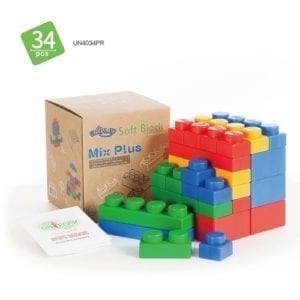Today’s post is by teacher and founder, Nidhi Patel. She shares four rules for doing rewards right.
I hear families both struggling and thriving with teaching kids at-home. Our new normal has changed a lot of typical rules: screen-time restrictions have been largely lifted and parents are using an age-old technique more than ever….
“Mommy has an important call for 1 hour, ok, so you can play on your iPad if you can stay out of the room, deal?”
As someone who thinks about this a lot, parents often ask me, “is bribing my kids OK?” The answer is, it can be, yes. Rewards are actually an extremely important tool to build new skills – when applied correctly.
So how did rewards get such a bad rep?
It happened in 1971 with an experiment with Stanford students by Edward Deci. He asked 24 students to solve a puzzle in 13 minutes. On day one, if they didn’t finish, he’d solve it for them – giving them an intrinsic motivator of not wanting it to be done for them. On day 2, he paid half of them $1 for solving each puzzle. On this day, he found that the paid students worked harder and solved more puzzles. On the 3rd day, he didn’t pay any of them again. This time he found that the ones who were paid on the 2nd day didn’t try as hard on the 3rd day. So he surmised that extrinsic motivation (the money) served to deter intrinsic motivation.
Later, researchers found that there wasn’t actually a statistically significant difference in effort on day 2 vs. day 3. Additionally, researchers uncovered that the students already enjoyed playing the game – they already had intrinsic motivation. Why would you rewards kids if they already enjoyed doing the task?
- Rule #1 of doing rewards right is that you reward people for doing things they don’t like – like breaking habits or building new ones.
There have been numerous studies on the effectiveness of rewards in breaking bad habits – like smoking in pregnant women and in building new habits like exercising. Rewards are important when a behavior is not already intrinsically motivated.
- Rule #2 is that rewards should be based on effort and not outcome. For example, a D student probably won’t be motivated by a reward only for getting an A – that may not be realistic. But, if the reward is tied to working on schoolwork for an extra 30 minutes, that student can build study skills to improve their grades. Once that skill is developed, you should stop rewarding it and move on to another skill that needs an extra push.
- Rule #3 is that the reward matters. Imagine if your boss told you that you had to work an extra 30 hours this week, but he’s going get everyone an engraved pen on Friday. Rewards have to hold value in order to drive value. If it’s added pay or some equal amount of time off later, that provides a useful reward, a pen likely won’t motivate.
- Finally, rule #4 – and probably the most important rule. There has to be autonomy built into the process. The child must have choice. They must get choice on what they work on, how or their reward. So if your student is getting D’s and you want to motivate him to work harder in school, let him decide how long and how many days he will apply himself and what he gets if he fulfills his goals with fidelity. Without autonomy, we make rewards-based skill-building a transactional exercise – more like bribes – and that, is probably not serving our kids well.
Rewarding is everywhere.
We buy ourselves gifts, we treat ourselves to evenings off or other perks for putting forth effort into things we’d rather not do. We use extrinsic motivation to develop a skill – as that skill is practiced we develop intrinsic motivation to get better or practice harder without the external motivation.
So, families, go ahead and use rewards. Just refocus on building skills with autonomy —“for next hour, you can either play a math game or read a book. If you do this, I will let you pick what we make for dinner.”
By: Nidhi Patel, teacher and founder of Kred Rewards - a free tool for parents to provide positive rewards for student skill-building kredapp.com



